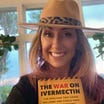You’re Free to Disagree
Sadly, while ours is still technically a free country, I could easily get canceled for posting certain thoughts publicly.
I first read George Orwell’s 1984 in — I am not making this up — 1984. It was as dystopian to me then as The Hunger Games would be to my own kids three decades later. I had the Thought Police; they had “fight to the death”. Same genre — dark, grim, dehumanizing “fiction” — different generation.
Even though Orwell was British and his Airstrip One province was fictitious, still his vision of the future looked nothing like my reality. In fact, the 1984 my friends and I inhabited kicked ass. We were the definition of free, bopping from the beach to the bowling alley without any well-intended but annoying parents tracking us on Life 360. We had no Ministry of Truth; we had Michael Jackson and Madonna. The only Big Brother we cared about was Alex P. Keaton. Cash was king, the economy was booming, and while totalitarian regimes were obviously a reality, they were far away (albeit miserable), and not something we lost sleep over.
Forty years later, it’s starting to look like the only thing Orwell was off on was the time frame.
Orwell’s 1984 was marked by The Party exercising absolute control over people’s lives through surveillance, division, and the complete manipulation of information.
Sound familiar?
All of it is surreal and happening, but having spent three decades in the media, it’s the last part that feels like the most personal affront.
For the majority of my life, I believed the news to be a dispassionate roundup of global events: the Celtics crushed the Lakers; a tropical storm was headed for Madagascar; Twitter stock was in the shitter. Sure, everyone knew they stuck the sensationalist stuff out front — props to Don Henley for the spot-on lyrical synopsis — but it wasn’t as if most of us sat around debating whether Watergate actually happened or if 60 Minutes was a trustworthy source of story details. You couldn’t tell by watching the news whether Tom Brokaw leaned blue or Peter Jennings leaned red. Can anyone with a pulse say the same thing about Rachel Maddow or Tucker Carlson?
COVID was particularly used to escort unbiased information directly out the window. If you didn’t agree with the single safe-and-effective, masks-work, natural-origin narrative, you were slandered, scrubbed from search engine results, or both. The “media” told us who to trust (the CDC, FDA, and WHO, period), and who not to trust (the Disinformation Dozen, formerly esteemed journalists like Bari Weiss, Glenn Greenwald, and Matt Taibbi, the vaccine injured and their loved ones, oh and every other “dissenting” voice on the planet).
We were repeatedly told to trust “The Science,” as if science is an iron-clad set of unequivocal certainties and not, in fact, the study of theories and hypotheses that is by its very nature evolutionary; an iterative process through which new evidence or discoveries naturally lead to revamped conclusions. If “widely accepted” indeed meant “settled,” the Earth would still be considered the center of the universe and women would be given routine hysterectomies to relieve anxiety, depression, and the occasional emotional outburst.
Sadly, while ours is still technically a free country, I could easily get canceled for posting such thoughts publicly (my Instagram account was shut down for sharing CDC data, for crying out loud), and you certainly won’t hear anything remotely similar on the nightly “news.”
Not to be dramatic, but sovereignty is the cornerstone of democracy. Our judicious founding fathers felt so strongly about the right to express an opinion — even if that opinion was contrary to or even critical of the government — that when they realized the Constitution needed a little tweaking, it was the very first item they added. Elon Musk wisely quipped, “Is someone you don't like allowed to say something you don't like? If that is the case, then we have free speech. It's damn annoying, but that is the sign of a healthy, functioning free speech situation."
In case you hadn’t noticed, we do not have a healthy, functioning free speech situation. Just ask presidential hopeful Robert F. Kennedy, Jr. Before Kennedy had even finished announcing his candidacy, his YouTube channel was deplatformed. (Incidentally, he never even uttered the word vaccine.) If you were a fifth grader assigned to write his biography and you used Google to do your research, your paper would describe an anti-vax, antisemitic conspiracy theorist. And unless you knew to check Rumble or Telegram or another platform that supports free speech and isn’t completely captured, you’d never get a chance to decide for yourself.
And don’t you want to decide for yourself?
The Bill of Rights makes no stipulation that protected speech be popular, fair, or even true. The freedom to openly express our thoughts (and thus, have unfettered access to those ideas that oppose them) is inalienable.
“The first amendment was not written for easy speech,” Kennedy said. “It was written for the speech nobody likes you for.” If you believe that vaccines are lifesaving wonders of modern medicine or that an alien invasion is imminent, I might conclude you’re a few fries short of a Happy Meal, but I wouldn’t want to live in a world where muzzling you was an option.
Oscar Wilde put it best: “I may not agree with you, but I will defend to the death your right to make an ass of yourself.” The beauty of democracy is that if you consider Wilde a pompous blowhard, you’re free to say so.









Free speech, more important than your feelings.
Amen!! All the dystopian novels were prophetic- “the Truth will out”!
And 1984 Rocked! Loved my 80’s hair!😂